Explained: Bristol City’s wage pressure and why the Robins cannot spend big in the transfer market
This article contains affiliate links. We may earn a small commission on items purchased through this article, but that does not affect our editorial judgement.
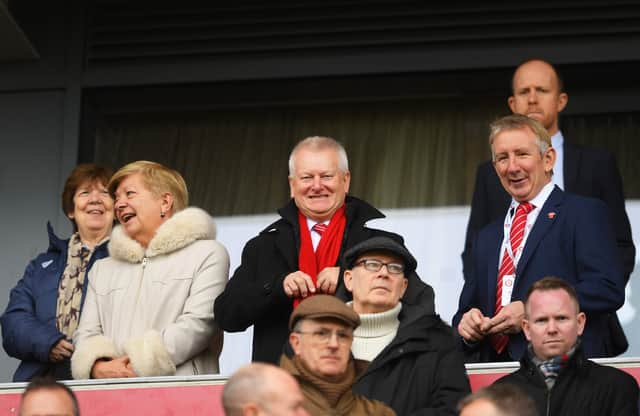

Bristol City are due to announce their latest accounts in the near future, after revealing a pre-tax loss of £10.07m last January for the 2019/20 campaign.
With football affected by the Covid-19 pandemic - and no crowds for the entire 2020/21 campaign - the next set of financials will be eye-watering.
Advertisement
Hide AdAdvertisement
Hide AdThat’s according to club owner Steve Lansdown, who has already called them ‘horrific’, setting the scene. Speaking earlier this year to 3 Peaps in a Podcast, Lansdown said: “When we produce our numbers on the 31st May, they will be horrific. And I hope when people see that they will recognise what it takes to run a football club at the level we’re at.”
The last accounts published only included up to two months of the pandemic, and the next public release of financial statements will likely show an even bigger loss.
When the club decides to release the forthcoming report in itself could be interesting: will the timing coincide with the January transfer window to show supporters that spending is difficult currently? Or afterwards to not reveal sensitive information to Championship rivals?
Profitability and Sustainability, as the financial rules are termed in the Championship, is assessed over a three-year period.
Advertisement
Hide AdAdvertisement
Hide AdBristol City are not allowed to make more than a £39m loss over that period (£13m per year).
Analysts point out that key to the club’s immediate financial future is the 2018/19 accounts where the Robins achieved Steve Lansdown’s self-avowed ambition to turn a profit. (Although for that to happen, it took selling off the crown jewels: academy products Joe Bryan, Lloyd Kelly and Bobby Reid, as well as talisman Aden Flint.)
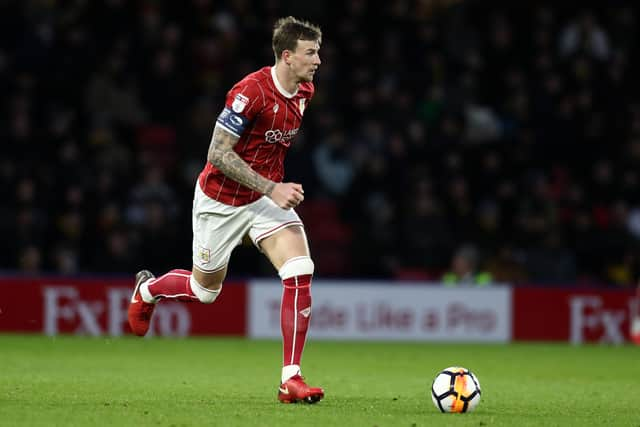

Last three-rolling financial reports:
- 2017/18: Loss of £25.347m
- 2018/19: Profit of £10.95m
- 2019/20: Loss of £10.07m
- 2020/21: To be released in the new year?
When that fruitful year of 2018/19 drops off the three-year rolling period, the club will be under pressure to remain within the Profitability and Sustainability limits.
Reading were punished this season for breaking the rules with a six-point penalty in the league table, indicating what happens for those sent to the naughty step. The Royals must now stick to a strict EFL-imposed business plan to avoid incurring another six-point penalty.
Advertisement
Hide AdAdvertisement
Hide AdThat will not happen in BS3 though, under the watch of the generous Lansdown family who are estimated to have invested more than £160m in Bristol City already. Across a period when Derby County, Sheffield Wednesday, Wigan and Birmingham City have all come a cropper over the last seasons too for not meeting the rules correctly.
Wage pressure
Player wages are the biggest outlay for the Robins and a thought-provoking social media post by the excellent financial account SwissRamble this week showed how Bristol City’s wages to turnover ratio has been one of the highest in the Championship and Premier League, at a whopping 122% since 2010/11.
City’s wage bill is mid-table but relative to the money the club makes, it is ginormous.
To pay the playing squad takes 22 per cent more than the club makes in an entire year. That is unsustainable and the owning Lansdown family are quite right to wish to rein this in over the long term, and make the club able to pay its way and not rely on a benefactor.
Advertisement
Hide AdAdvertisement
Hide AdThat difference between wages and turnover illustrates how Steve Lansdown continues to prop up the club financially and how expensive it is to run the Robins. Even for a Guernsey-based billionaire named as the 124th richest person in the United Kingdom by the Sunday Times earlier this year.
But at the same time the club’s much-mentioned ambition to make it to the Premier League looks to be a long way off yet.
Indeed, it must be asked too, given City’s inability to make even the playoffs since 2008, has all that spending been correctly managed? That Adam Nagy was allowed to leave for nothing last summer hints at an answer.
Nigel Pearson explained earlier this season that the club are trying to lower their wage bill. City renegotiated Andi Weimann’s contract successfully last summer, as well as retained defender Nathan Baker on reduced terms.
Advertisement
Hide AdAdvertisement
Hide AdNo doubt the financial pressures mentioned above played a part as 13 senior players reached the end of their contracts last season. Jamie Paterson was one of those allowed to leave, and he has since starred for rivals Swansea City in the league this season, leading to questions from City supporters.
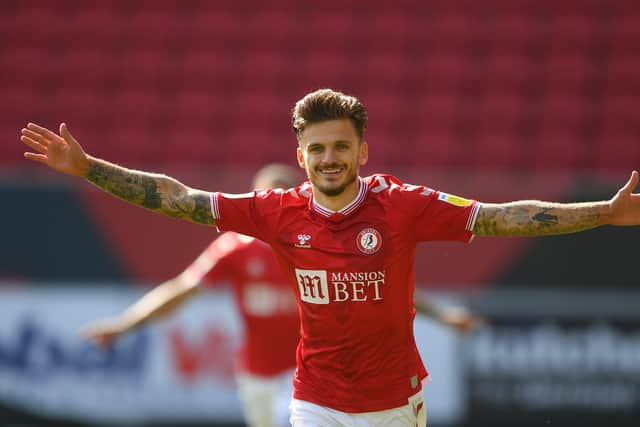

Brighter future?
But there is hope that the financial outlook may improve.
This January is highly unlikely to see much spending as a result of the above, with both Pearson and chairman Jon Lansdown hinting at the need to be patient to spend on transfers again. Particularly for an expensive commodity such as a striker with explosive pace and power.
“At some point in a year’s time or two years’ time the investment will maybe be in someone that can score more goals,” said Nigel Pearson after the 1-1 draw with Luton back in September.
So there are plans afoot for spending in the next seasons, and the club obviously anticipates being able to bring its wage levels down. No doubt as several expensive players drop off the books.
Advertisement
Hide AdAdvertisement
Hide AdThen there is the changing nature of the game: the EFL’s regulations were updated last year to include a clause permitting its clubs – in the Championship, League One and League Two – to exclude “Covid-19 costs” for the 2019-20 and 2020-21 seasons from their reported expenditure. This may help mitigate City’s expected last two seasons of losses.
Plus there is Tracey Crouch’s fan-led review on the horizon, which suggests discussing the future of Premier League parachute payments, an independent regulator of football, and a more even distribution of money across the football league.
And while there is little money to spend at Ashton Gate currently, with Steve Lansdown not willing (and unable, due to P&S rules) to bankroll exorbitant spending on the pitch (his own personal fortune is estimated to have grown by £15m to £1.365billion over the last 12 months), the club is still able to ‘trade’ players.
Fees were forked out last summer for young defensive talents George Tanner and Rob Atkinson and the club will look to buy in a similar way in future, if not overhaul the squad with established Championship quality. Player sales and outgoing loans may facilitate more of this.
Advertisement
Hide AdAdvertisement
Hide Ad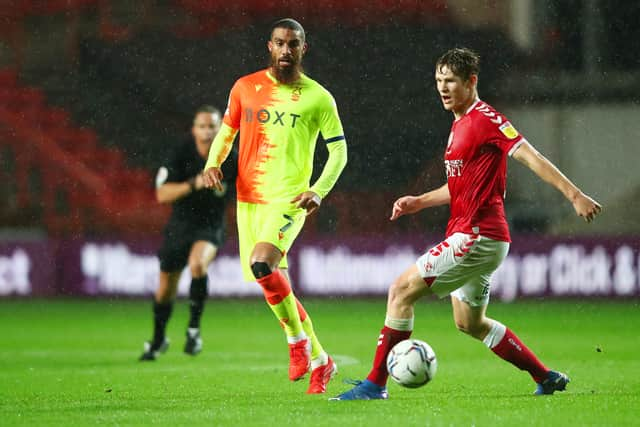

Plus the new training ground, plans for a sporting quarter around the impressive Ashton Gate, with its summer concerts and more, mean that corporate monies will continue to roll in and fresh academy talent may spring from the Failand pitches.
This season’s travails on the pitch have shown that the playing squad is in need of renovation, but also time to allow for improved corporate revenues to grow and a promising core of young players to improve. Alex Scott, Antoine Semenyo, Ayman Benarous, Tommy Conway, Sam Bell and others could grow into something special.
Only, that is, if those sparkling gems are not sold off again like back in 2018/19 - when Bryan, Reid and Kelly left - for those much needed profits again. A vicious circle can be avoided if City can bring back their wage costs and get their recruitment right to reduce financial pressures in the future.
The club says it has a three-year plan, with Pearson at the helm. Have lessons been learned?
Advertisement
Hide AdAdvertisement
Hide AdBrentford were promoted last season to end an exile from the top flight since 1947. The Bees have shown that it is possible to back yourself, pay bigger wages but have to sell key players if unable to make the big time.
The Robins’ senior hierarchy sees that as gambling, but another way of looking at it may be that it is the confidence to negotiate the transfer market and make ends meet when needed. Ultimately the Bees have flown high, as the Robins have remained grounded.
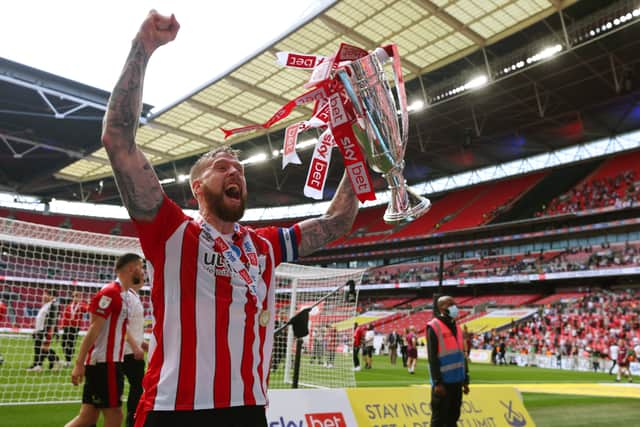

Is fresh thinking at the top needed? Steve Lansdown admitted earlier this year to fans podcast Three Peaps in a Podcast that he is looking to bring in outside investment and he has mentioned the word ‘legacy’ and ‘succession’ several times when discussing his future role at Bristol City. He has been in control of the club since 2007.
Son Jon recently told the same podcast that: “You’ve always got to plan for it [succession] because, especially when you care so much about something, you want it to be left in a better place so you’ve always got to be planning for what’s next.”
Advertisement
Hide AdAdvertisement
Hide AdIf the current three-year cycle does not develop successfully, then the Lansdowns may face tougher and tougher scrutiny on these finances and decisions being made in BS3.
Supporters see a beautiful house for their football team but continued under-performance out on the grass, with City arguably the biggest club to have never played in the Premier League. And that hard-earned buck must eventually stop somewhere.
Comment Guidelines
National World encourages reader discussion on our stories. User feedback, insights and back-and-forth exchanges add a rich layer of context to reporting. Please review our Community Guidelines before commenting.
